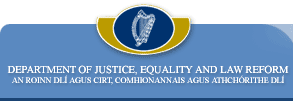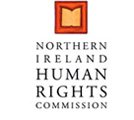Archive
Deirdre Duffy: Legitimate Victims, Illegitimate Agents
 This is our second guest post from Deirdre Duffy. You can read about Deirdre on our Guest Contributors page.
This is our second guest post from Deirdre Duffy. You can read about Deirdre on our Guest Contributors page.
According to the author Stanley Cohen (1997), no group has been as systematically and consciously demonised as refugees and asylum seekers. In his analyses of the creation of moral panics Cohen argues that at no point have this group been portrayed – accurately or otherwise – as anything other than a threat to society as a whole. Their status as people in need of refuge and sanctuary has been constantly questioned. It is little wonder then that advocates of refugee and asylum seekers constantly try to underline this group’s victimhood. Asylum seekers are not, after all, seeking asylum without good reason. However, in the long term, this promotion of the victimhood of refugees and asylum seekers places them in an extremely precarious position, one felt by many vulnerable groups, where their villainy is only negated by their ability to be victims. While this may not seem to be problematic, it is quite disempowering and restrictive of their ability to move from being asylum seekers to ordinary members of society by themselves. Legitimacy means powerlessness.
Liam Thornton: The Culture of Control and Reception Conditions for Asylum Seekers in Ireland
 This post is contributed by our regular member Liam Thornton. You can read about Liam on our Contributors page.
This post is contributed by our regular member Liam Thornton. You can read about Liam on our Contributors page.
A central concern of the welfare state within post-modern welfare debates is the use of discipline, whereby the democratic-welfare-capitalist society is the disciplinary or controlling society. Asylum seekers can be viewed as a threat to the functioning of the welfare state. Welfare state regimes, when they were being formulated, were addressed to citizens. However, the welfare state only ever provided a modicum of support to those relying on it. The welfare state can, in certain situations, be considered a penal institution, whose abstract penality is all the more pervasive when those outside the contours of entitlement seek to rely on basic state supports. Geddes argues that “the bogus myth of welfare scrounging” has polluted contemporary immigration and protection debates.
The welfare state has become a forum for exclusion of asylum seekers from mainstream welfare provision (For information on current reception regimes for asylum seekers in Ireland, see here). Current literature on reception conditions for asylum seekers in Ireland fails to properly account for its punitive nature. The current reception conditions in place developed against a background of heightened concern about growing number of asylum seekers and other persons seeking protection arriving in Ireland (see here). Read more…
Asylum Seekers, Migrant Workers & Budget 2010
 Following up from Mairead’s post on campaigning groups and Budget 2010, the Minister for Social and Family Affairs, Mrs. Mary Hanafin T.D. has remained tight-lipped about the suspected cuts to the social welfare budget (See the Minister’s interview with Pat Kenny on RTE‘s The Frontline here). In a recession, those particularly on the margins will be affected. Government social support for asylum seekers was extraordinarily low in the dizzying heights of the Celtic Tiger, and there is no indication that those within the direct provision system will see this system discontinued or reformed-despite the pure economic benefits that could ensue (see a previous blog post on this here).
Following up from Mairead’s post on campaigning groups and Budget 2010, the Minister for Social and Family Affairs, Mrs. Mary Hanafin T.D. has remained tight-lipped about the suspected cuts to the social welfare budget (See the Minister’s interview with Pat Kenny on RTE‘s The Frontline here). In a recession, those particularly on the margins will be affected. Government social support for asylum seekers was extraordinarily low in the dizzying heights of the Celtic Tiger, and there is no indication that those within the direct provision system will see this system discontinued or reformed-despite the pure economic benefits that could ensue (see a previous blog post on this here).
The condition of reception centres which cater for some 6,800 asylum seekers has recently been in the news (here and here). Asylum seekers in Sligo complained about the condition of a reception centre, due to a lack of hot water and lack of adequate hygiene facilities.
 It is unlikely that Budget 2010 will see any increase in the stipend of €19.10 per adult and €9.60 per child per week. Saint Vincent de Paul has stated that there should be no decrease in this level of payment and “common decency requires the rate to be increased”.
It is unlikely that Budget 2010 will see any increase in the stipend of €19.10 per adult and €9.60 per child per week. Saint Vincent de Paul has stated that there should be no decrease in this level of payment and “common decency requires the rate to be increased”.
Limerick Mayor, Kevin Kiely has stated that immigrants who cannot afford to pay for themselves should be deported from the country after three months. While it is unclear who precisely Cllr. Kiely was referring to, his comments should be challanged. For those seeking protection from the State, they are legislatively prohibited from working on pain of a fine and/or imprisonment. For those immigrants who had an entitlement to work in Ireland, often in the building industry and services sector, it sends a message that these people are simply a means to an end. Once maximum economic value was gained from these immigrants contribution to the economy, they are to be case aside and sent home. It will be interesting to see if debates on immigration, asylum and welfare protection will come to the fore in the coming weeks, in the lead up to Budget 2010.
I will be live blogging Budget 2010 on HRiI on December 9, 2009. This will be followed by a blog carnival on December 10 2009 (International Human Rights Day) assessing the impact of Budget 2010 on human rights protections in Ireland.
Asylum Seeking Women and Direct Provision
 Some worrying news from Galway’s and Mayo’s rape crisis centres. Asylum seeking women are being propositioned for sex outside reception centres. Aoibheann McCann of Galway’s Rape Crisis Centre (GRCC) states that many of these women are vulnerable, after suffering rape in their countries of origin. 20% of those who report rape or sexual abuse to GRCC are asylum seekers.
Some worrying news from Galway’s and Mayo’s rape crisis centres. Asylum seeking women are being propositioned for sex outside reception centres. Aoibheann McCann of Galway’s Rape Crisis Centre (GRCC) states that many of these women are vulnerable, after suffering rape in their countries of origin. 20% of those who report rape or sexual abuse to GRCC are asylum seekers.
 Senator Fidelma Healy Eames has called for random Gardaí (Irish police force) patrols outside direct provision centres to prevent men from preying on vulnerable child and adult asylum seekers. Senator Eames has also called for a more fundamental review of the direct provision system, noting that it costs €27,000 to provide for an asylum seeker under this system, as compared to an average cost of €18,000 per asylum seeker who is within traditional welfare state structures. (I have previously blogged on the direct provision system and asylum seekers, these posts can be found here and here).
Senator Fidelma Healy Eames has called for random Gardaí (Irish police force) patrols outside direct provision centres to prevent men from preying on vulnerable child and adult asylum seekers. Senator Eames has also called for a more fundamental review of the direct provision system, noting that it costs €27,000 to provide for an asylum seeker under this system, as compared to an average cost of €18,000 per asylum seeker who is within traditional welfare state structures. (I have previously blogged on the direct provision system and asylum seekers, these posts can be found here and here).
€91 million spent on housing asylum seekers in 2008
 Since 2003, there has been a large drop in the number of those claiming refugee or other forms of protection in Ireland (Statistics here). However, the numbers of people staying within the direct provision system remains stagnant. (Those needing an overview of the direct provision can access an article I wrote in 2007 here). RTE News reports that the Secretary General of the Department of Justice Equality and Law Reform (DJELR), Mr. Séan Aylward has attributed the rise in numbers to asylum seekers in direct provision using “…every conceivable form of appeal …”.
Since 2003, there has been a large drop in the number of those claiming refugee or other forms of protection in Ireland (Statistics here). However, the numbers of people staying within the direct provision system remains stagnant. (Those needing an overview of the direct provision can access an article I wrote in 2007 here). RTE News reports that the Secretary General of the Department of Justice Equality and Law Reform (DJELR), Mr. Séan Aylward has attributed the rise in numbers to asylum seekers in direct provision using “…every conceivable form of appeal …”.
Mr. Aylward states that some asylum seekers are using their legal rights “in an adept way” so as to delay return to their countries of origin. Mr. Aylward further states that 1,500 of the 7,000 people currently within the direct provision system have “repeatedly over and over invoked new avenues of appeal.”
 The Reception and Integration Agency (RIA) (an aegis of DJELR) has accommodated over 53,000 persons in this system since its inception in April 2000 (statistics here). By the end of 2008, RIA had accommodated 7,214 persons. By August 2009, there were 6,907 residents (which seems to have risen to 7,000 since the last official statistics). Using very crude mathematics, it appears that the average cost of keeping one individual in direct provision is €12,614 per year. This excludes the payment of €19.10 made to each adult asylum seeker or the provision of €9.60 for each child. As many of you will already know, asylum seekers are not entitled to work and, in general, will not be entitled to any other welfare benefit unless they can satisfy the habitual residence condition (see a blog post on this which was posted in September 2009).
The Reception and Integration Agency (RIA) (an aegis of DJELR) has accommodated over 53,000 persons in this system since its inception in April 2000 (statistics here). By the end of 2008, RIA had accommodated 7,214 persons. By August 2009, there were 6,907 residents (which seems to have risen to 7,000 since the last official statistics). Using very crude mathematics, it appears that the average cost of keeping one individual in direct provision is €12,614 per year. This excludes the payment of €19.10 made to each adult asylum seeker or the provision of €9.60 for each child. As many of you will already know, asylum seekers are not entitled to work and, in general, will not be entitled to any other welfare benefit unless they can satisfy the habitual residence condition (see a blog post on this which was posted in September 2009).
Regardless of the legitimacy or otherwise of Mr. Aylward’s claims of abuse of the asylum process, protection of socio-economic rights for all individuals is a fundamental right under international human rights law (in particular Article 2 of the International Covenant on Economic Social and Cultural Rights; however, protections also exist under other human rights conventions).
 With the current economic downturn, it will be increasingly difficult for campaigning organisations to argue for asylum seekers to be re-integrated back into the traditional welfare system (see FLAC’s research on the issue here). However, it is precisely in an economic downturn that it is essential to ensure that those who did not cause the banking and economic collapse be further scapegoated. It remains to be seen what will be the precise impact of the economic downturn and whether political and/or public anger will be directed at those asylum seekers within the direct provision system. In a paper that I am (hopefully!) going to be preparing for publication in the near future, I am going to argue that the failure of human rights treaty bodies to deliver clear and unequivocal advice to States on their obligations under human rights treaty law, has led to a system of differentiated entitlement for those seeking asylum in Ireland and the UK. I will claim that asylum seekers are a special category of immigrant, whose status is not clandestine, and whose social and economic rights should be fully protected unless there is a change in the asylee’s immigration status. This will necessitate an examination of whether IHRL permits States to withold socio-economic protections from those who refuse to return to their country of origin after a rejection of the asylum claim. It is the latter issue which needs careful examination, and any input from blog readers and contributors is much appreciated.
With the current economic downturn, it will be increasingly difficult for campaigning organisations to argue for asylum seekers to be re-integrated back into the traditional welfare system (see FLAC’s research on the issue here). However, it is precisely in an economic downturn that it is essential to ensure that those who did not cause the banking and economic collapse be further scapegoated. It remains to be seen what will be the precise impact of the economic downturn and whether political and/or public anger will be directed at those asylum seekers within the direct provision system. In a paper that I am (hopefully!) going to be preparing for publication in the near future, I am going to argue that the failure of human rights treaty bodies to deliver clear and unequivocal advice to States on their obligations under human rights treaty law, has led to a system of differentiated entitlement for those seeking asylum in Ireland and the UK. I will claim that asylum seekers are a special category of immigrant, whose status is not clandestine, and whose social and economic rights should be fully protected unless there is a change in the asylee’s immigration status. This will necessitate an examination of whether IHRL permits States to withold socio-economic protections from those who refuse to return to their country of origin after a rejection of the asylum claim. It is the latter issue which needs careful examination, and any input from blog readers and contributors is much appreciated.
Reception Conditions for Asylum Seekers in Ireland
 The Free Legal Advice Centres (FLAC) have issued a Briefing Note on the Habitual Residence Condition which explains a number of victories for four asylum seekers who have been granted child benefit. Before going into detail on this specific issue, it is necessary to examine this issue in some detail and explain the rights and entitlements for asylum seekers within the Irish welfare state.
The Free Legal Advice Centres (FLAC) have issued a Briefing Note on the Habitual Residence Condition which explains a number of victories for four asylum seekers who have been granted child benefit. Before going into detail on this specific issue, it is necessary to examine this issue in some detail and explain the rights and entitlements for asylum seekers within the Irish welfare state.
Asylum seekers are those who claim protection within a State (be it for refugee status, subsidiary protection or leave to remain). When examining whether an individual is entitled to protection from Ireland, an appreciable period of time may pass between initial entry and final determination on whether protection will be granted. Therefore questions arise as to how an asylum seeker will be supported.
Migration and the Death of the Celtic Tiger
Our colleague Jaya Ramji-Nogales (left)  has posted on IntLawGrrls on the recently released report by Martin Ruhs and Emma Quinn for the Migration Information Source on contemporary challenges to Ireland’s immigration policies.
has posted on IntLawGrrls on the recently released report by Martin Ruhs and Emma Quinn for the Migration Information Source on contemporary challenges to Ireland’s immigration policies.
The report’s conclusions are unlikely to come as much of a surprise to most people in Ireland:
The number of unemployed continues to grow, representing an increasing burden on the state. Even given the habitual residency condition on social welfare, the number of non-Irish unemployed workers entitled to support is substantial.
According to CSO, which tracks claims for unemployment and other employment-related government assistance, non-Irish nationals made up 18.5 percent of all persons (80,786 of 435,735) on the Live Register in July 2009. Of those non-Irish nationals, over half were from EU-12 countries.
The difficult economic conditions could result in migrants returning to their countries of origin in large numbers, as EU-10 nationals have the ability to legally return and take up work once conditions improve. Sufficient data to test this hypothesis are not yet available.
If international economic conditions improve, large-scale Irish emigration could resume. There are some indications this may happen: emigration rates overall rose 25 percent between 2006 and 2008. However, net migration remains strongly positive.
In Jaya’s overview of the report, I found her comments about Ireland’s “safe country of origin” principle to be of particular interest:
[Ireland] instituted a “safe country of origin” element into the asylum determination process. Though entirely without basis in international law or in the realities of persecution, such policies create a presumption that asylum seekers from “safe countries of origin” do not need protection. Combined with legislation making carriers liable for transporting unauthorized migrants, this program led to a decline in asylum applications in Ireland after 2002 (a drop that coincided with declines in asylum applications throughout the developing world, likely linked to stricter border control policies in the wake of September 11).
NIHRC Launches Report
 The Northern Ireland Human Rights Commission (NIHRC) has recently published a new report entitled No Home from Home: Homelessness for People with No or Limited Access to Public Funds. The authors, Roisin Devlin and Sorcha McKenna, conducted an investigation into homelessness amongst migrants, who are not entitled to access public funds. The lengthy report makes a number of recommendations and findings which suggest that current practice may violate international and human rights standards.
The Northern Ireland Human Rights Commission (NIHRC) has recently published a new report entitled No Home from Home: Homelessness for People with No or Limited Access to Public Funds. The authors, Roisin Devlin and Sorcha McKenna, conducted an investigation into homelessness amongst migrants, who are not entitled to access public funds. The lengthy report makes a number of recommendations and findings which suggest that current practice may violate international and human rights standards.
I will post a commentary of this report on the blog in the coming weeks.


FLAC to launch Direct Provision report
A regional launch will take place in Limerick on February 22 2010, see here for more.